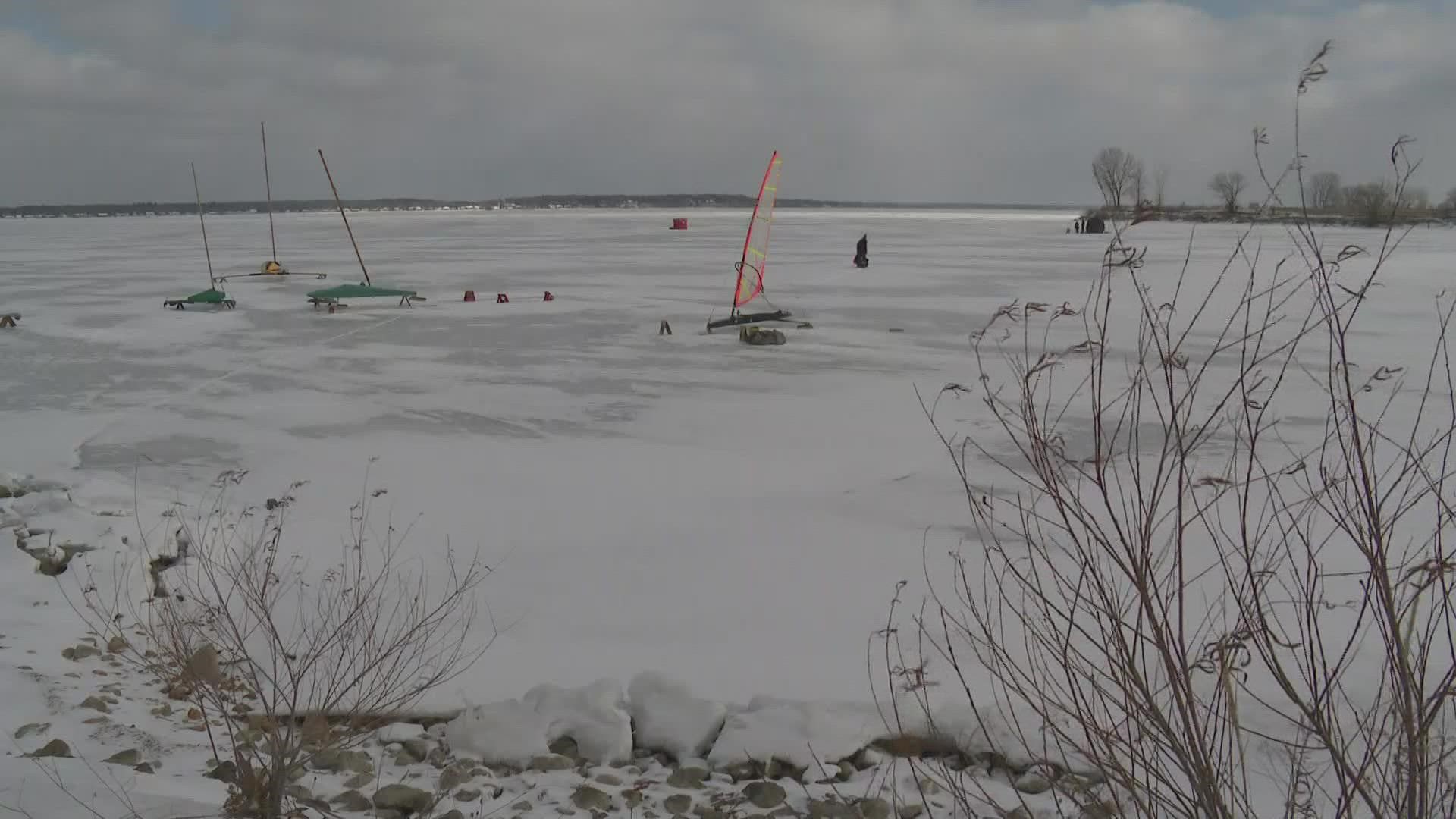MUSKEGON, Mich. — The federal government is providing $1 billion to support ongoing projects to clean up the Great Lakes. The money is part of the $1 trillion Infrastructure and Jobs Act, which was signed by President Joe Biden in 2021.
The new funds will accelerate the cleanup and restoration of nine high-priority areas in Michigan whose lakes, rivers and watersheds flow into the Great Lakes.
The projects identified by the Environmental Protection Agency (EPA) include the Clinton River, Detroit River, Manistique River, Muskegon Lake, River Raisin, Rouge River, St. Clair River, St. Mary's River, and Torch Lake areas.
The one-time investment is in addition to funding Congress approves annually for cleanup and remediation programs.
Decades of industrial pollution and development have harmed the environment in and around our Great Lakes. In 1987, the most seriously damaged areas were identified as "Areas of Concern.”
RELATED: President Biden, EPA announce $1 billion investment in cleanup and restoration of the Great Lakes
In recent years, 14 sites in Michigan were identified as Areas of Concern because of funding from the Great Lakes Restoration Initiative. Three areas were cleaned and “delisted” (Deer Lake, White Lake, Lower Menominee River areas).
Decades of work to clean and restore Muskegon Lake and areas around the lake could culminate with "delisting" in 2023. Money from the new funding announcement will likely be key as efforts in Muskegon transition to monitoring areas on and along Muskegon that have been cleaned in recent years.
"That's exciting," said West Michigan Shoreline Regional Development Commission (WMSRDC) Executive Director Erin Kuhn.
WMSRDC is the Muskegon-based agency that directs federal dollars to local cleanup projects. Over the last two decades, dozens of grants have been used to clean industrial sites, remove contaminated soil and clear the lake's bottom from debris dumped into the lake during the lumbering era.
Kuhn says the work has improved large sections of shoreline all along Muskegon Lake, including the Grand Trunk property.
"It went from a dumping ground to a park where people like to go," she said.
Much of the efforts to restore Muskegon Lake are the direct result of efforts from community members who make up the Muskegon Lake Watershed Partnership (MLWP). The $1 billion to support environmental remediation on the Great Lakes is what MLWP members have been hoping for as "delisting" Muskegon Lake is becoming a real possibility.
"I think great, we can finally get the job done," said Kathy Evans with MLWP.
Evans and others have worked tirelessly to identify, oversee and manage restoration efforts around Muskegon Lake.
At one site along the Muskegon River, it took years to remove 700,000 gallons of spilled oil. The property will need to be monitored for years to come to prove the cleanup effort was successful.
If Muskegon Lake is delisted in 2023, it won't necessarily mark the finish line for MLWP, but Evans says it will send a signal the damage caused by Muskegon's industrial past has been reversed.
"It lets the greater world know that we're a clean and restored water body," she said.
For more information, visit muskegonlake.org.
►Make it easy to keep up to date with more stories like this. Download the 13 ON YOUR SIDE app now.
Have a news tip? Email news@13onyourside.com, visit our Facebook page or Twitter. Subscribe to our YouTube channel.

